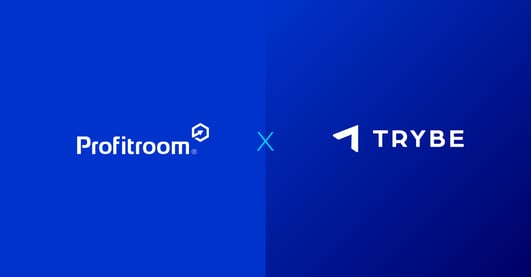Loyalty Series
Article 1/3
Direct bookings are great. Direct relationships are better.
So you’ve cut your OTA costs. Your website’s pulling its weight. The “Book Now” button is finally getting some love.
You’d think this would be cause for celebration… but then those guests vanish after checkout only to pop up again three months later on Booking.com like nothing ever happened.
That sting? It’s called missed opportunity - and it happens when hotels chase direct bookings but forget about direct relationships.
Because let’s be honest: if you’re pouring time and money into driving more guests to book direct, only for them to slip back into OTA territory next time… what exactly are you building?
The first booking is just the start. If you're treating it like the win? That’s like celebrating landing a first date but ghosting them afterward.
The real value? It lives in what comes next—and whether you're set up to keep that guest coming back through your door (and not someone else’s link).
CRM is your relationship engine
This isn’t about sending more emails, but rather about sending better emails at smarter moments. A solid CRM setup doesn’t mean spamming people who once stayed with you last August. It means knowing who they are, what they liked, and why they might want to come back again soon.
That could look like:
- A personalised post-stay email that acknowledges their recent visit
- An exclusive offer tied to their booking pattern ("Special rate for your return visit")
- Segmented campaigns so families don't get pitched midweek solo work packages
This kind of automation isn’t robotic—it feels helpful.
What’s often frustrating is losing customers who are already interested in your offer and ready to book through your site, but get lost during the reservation process.
Translation? You did all the hard work... then let clunky systems or generic follow-ups do all the un-doing.
Data is only powerful if you use it properly
Hotels have access to some of hospitality's most personal data, but too often do less with it than OTAs ever could.
You know when guests stayed and basic booking details. With the right systems and processes in place, your team can capture important preferences and special occasions. Even simple notes about whether they enjoyed their stay or mentioned a special occasion can be powerful tools for personalisation. And yet… most follow-up comms ignore all of this gold dust entirely.
Letting that kind of insight collect digital dust isn’t just lazy; it loses revenue over time.
“Guests value genuine moments more than forced personalisation,” Aneli Gerber, Regional Success Manager, Africa, Asia–Pacific, Middle East & Czechia, explains. “A thoughtful surprise during their stay goes a lot further than using their name in a generic email.”
Nail this part and suddenly staying at your hotel starts feeling less like shopping around... and more like coming home.
Loyalty that doesn’t feel like a points scheme spreadsheet
If loyalty programmes still make guests collect points toward free breakfasts two years from now—they’re not loyalists; they're bored accountants waiting out an ROI calculator.
Modern loyalty needs new rules:
✔️ Real perks now—not theoretical ones later
✔️ Things people care about (late check-outs > R100 discounts)
✔️ Elevation based on experience—not spreadsheet acrobatics
“A loyalty programme should be easy,” Aneli says plainly, "and feel like a genuine reward, not just a numbers game.”
If it takes longer than 30 seconds for someone to understand how they're being thanked, you’re doing it wrong.
Don’t pay twice for the same guest
OTAs are great at getting new faces through the door… the first time. But if you're still paying commission on repeat customers six months later, you're handing over margin unnecessarily because no one bothered following up properly post-stay.
Here’s what winning looks like:
✔️ Guest books via OTA
✔️ Staff capture consented contact info on-site
✔️ Post-stay automated email lands within days—personalised & compelling
✔️ Offer includes members-only perk (“Next stay = free upgrade”)
“A well-timed email after checkout can thank the guest,” Aneli says, “and explain what they missed by booking through an OTA.”
The goal isn’t cutting OTAs out completely; it’s not letting them own relationships you’ve already earned.
One last thing: Is your website pushing guests away?
Even if you've wooed them once—they won’t stick around if your direct booking flow feels harder than ordering takeaway online during peak hours:
✖ Booking journeys dragged out over 6+ pages
✖ Confusing mobile layouts or weird dropdown menus from 2009
✖ Misleading rates until final steps = instant bounce
Fix these things (with tools built specifically for hotels—like Profitroom's platform), and suddenly repeat visitors stop bouncing…and start staying longer (both online and IRL).
Stop dating guests you never call back
Direct bookings are nice. Repeat bookings via strong relationships? Way better: for margins, marketing ROI and long-term stability alike.
So build systems designed not only for making sales—but keeping promises:
- Use CRM tools built around actual behaviour—not guesswork
- Make loyalty feel earned—not calculated
- Send smarter follow-ups post-checkout—not copy-paste templates
- Optimise every step of mobile UX—or risk losing hard-won attention
Because in this industry? Relationships aren’t soft metrics—they're revenue streams waiting patiently behind poor tech stacks or neglected marketing strategies.
Want help turning one-time guests into lifelong regulars? Start here
-Mar-11-2025-10-07-16-4716-AM.jpg?width=2000&name=Reception%20with%20Guest_00125%20(3)-Mar-11-2025-10-07-16-4716-AM.jpg)



.png)
.png?width=1200&height=627&name=Direct%20bookings%20are%20great.%20Direct%20relationships%20are%20better.%20(1).png)











